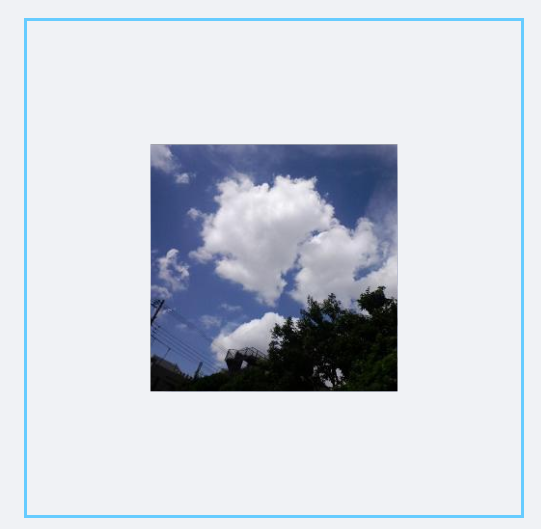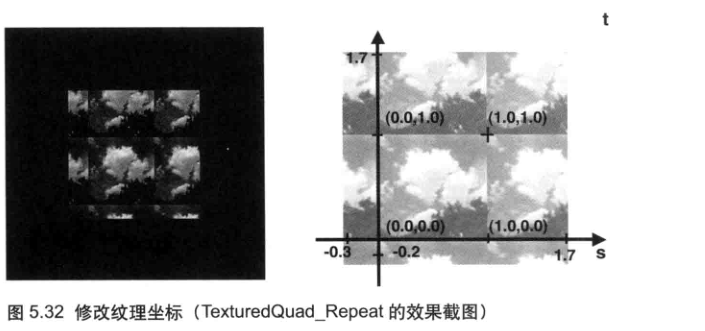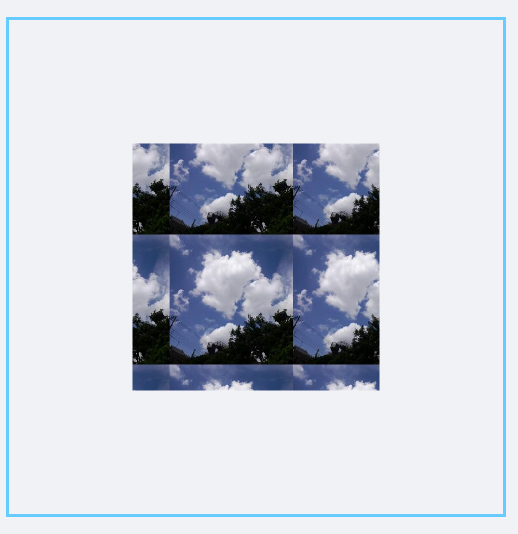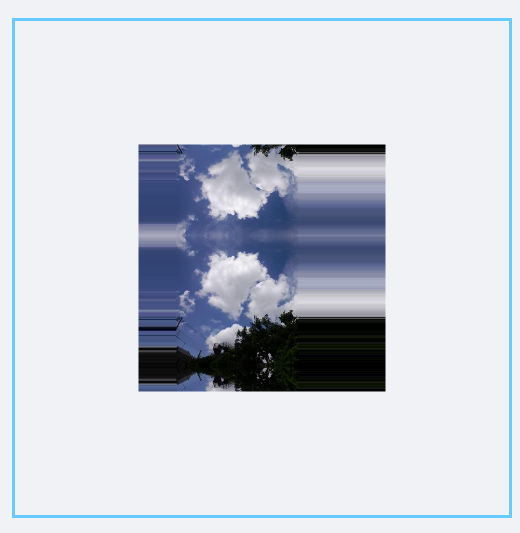纹理映射
返回首页纹理映射

纹理坐标

加载的相关代码
const vshader_source = `
attribute vec4 a_position;
attribute vec2 a_texcoord;
varying vec2 v_texcoord;
void main() {
gl_position = a_position;
gl_pointsize = 10.0;
v_texcoord = a_texcoord;
}
`;
const fshader_source = `
// 指定精度,书上的例子会编译报错, 参考 https://stackoverflow.com/a/27067272
precision mediump float;
varying vec4 v_color;
uniform sampler2d u_sampler;
varying vec2 v_texcoord;
void main() {
gl_fragcolor = texture2d(u_sampler, v_texcoord);
}
`;
export function initvertexbuffersch5_3(gl: webglrenderingcontext) {
// 同时保存顶点坐标纹理坐标,坐标的映射关系见上面的图
const verticescoords = new float32array([
-0.5, 0.5, 0.0, 1.0,
-0.5, -0.5, 0.0, 0.0,
0.5, 0.5, 1.0, 1.0,
0.5, -0.5, 1.0, 0.0,
]);
let n = 4;
// step1 创建缓冲区对象
const vertexbuffer = gl.createbuffer();
const coordbuffer = gl.createbuffer();
// step2 将缓冲区对象绑定到目标
gl.bindbuffer(gl.array_buffer, vertexbuffer);
gl.bindbuffer(gl.array_buffer, coordbuffer);
//step3 向缓冲区写入数据
gl.bufferdata(gl.array_buffer, verticescoords, gl.static_draw);
//step4 将缓冲区分配给attribute变量,这个2指两个点是一个坐标
const a_position = gl.getattriblocation(gl.program, 'a_position');
const a_texcoord = gl.getattriblocation(gl.program, 'a_texcoord');
const fsize = verticescoords.bytes_per_element;
// 重点在这里!!!
gl.vertexattribpointer(a_position, 2, gl.float, false, fsize * 4, 0);
gl.vertexattribpointer(a_texcoord, 2, gl.float, false, fsize * 4, fsize * 2);
// step5 开启attribute变量。
gl.enablevertexattribarray(a_position);
gl.enablevertexattribarray(a_texcoord);
return n;
}
export function inittextures(gl: webglrenderingcontext, n: number) {
// 创建纹理对象
const texture = gl.createtexture()!;
// 获取uniform存储位置
const u_sampler = gl.getuniformlocation(gl.program, 'u_sampler')!;
const image = new image();
image.onload = () => {
// 图像加载完成处理纹理
loadtexture(gl, n, texture, u_sampler, image);
};
image.src = '/images/sky.jpg';
}
function loadtexture(gl: webglrenderingcontext, n: number,
texture: webgltexture, u_sampler: webgluniformlocation, image: htmlimageelement) {
//对纹理图像y轴反转
gl.pixelstorei(gl.unpack_flip_y_webgl, 1);
// 开启0号纹理单元
gl.activetexture(gl.texture0);
// 向target绑定纹理对象
gl.bindtexture(gl.texture_2d, texture);
// 配置纹理参数
gl.texparameteri(gl.texture_2d, gl.texture_min_filter, gl.linear);
// 配置纹理图像
gl.teximage2d(gl.texture_2d, 0, gl.rgb, gl.rgb, gl.unsigned_byte, image);
// 将0号纹理传给着色器
gl.uniform1i(u_sampler, 0);
}
initshaders(gl, vshader_source, fshader_source);
const n = initvertexbuffersch5_3(gl);
inittextures(gl,n);
// 清空canvas
gl.clear(gl.color_buffer_bit);
//绘制点
gl.drawarrays(gl.triangle_strip, 0, n);

理解配置纹理参数 gl.texparameteri

将纹理坐标进行修改
const verticescoords = new float32array([
-0.5, 0.5, -0.3, 1.7,
-0.5, -0.5, -0.3, -0.2,
0.5, 0.5, 1.7, 1.7,
0.5, -0.5, 1.7, -0.2,
]);
由于纹理图像不足以覆盖整个矩形,所以你可以看到,在那些本该空白的区域,纹理又重复出现了。

修改纹理参数查看效果:
// 配置纹理参数
gl.texParameteri(gl.TEXTURE_2D, gl.TEXTURE_MIN_FILTER, gl.LINEAR);
gl.texParameteri(gl.TEXTURE_2D, gl.TEXTURE_WRAP_S, gl.CLAMP_TO_EDGE);
gl.texParameteri(gl.TEXTURE_2D, gl.TEXTURE_WRAP_T, gl.MIRRORED_REPEAT);
